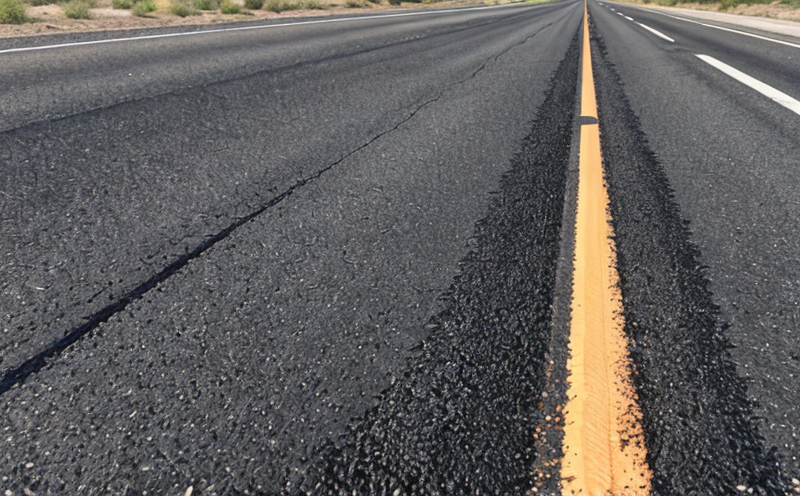ISO 12697 Marshall Stability and Flow Correlation
The ISO 12697-3:2015 standard provides a comprehensive framework for determining the Marshall stability and flow properties of asphalt mixtures. This service is crucial for quality assurance in the building and infrastructure sector, particularly in the pavement construction industry. Understanding these parameters ensures that the materials used meet stringent performance criteria necessary for long-lasting roads, pavements, and other surfaces.
The Marshall test assesses the resistance of an asphalt mixture to deformation under load, while flow measures how much the mix flows when heated. These properties are vital as they directly impact the durability, skid resistance, and overall performance of the pavement. By correlating stability with flow, this service helps in optimizing asphalt mixtures for specific environmental conditions.
The testing process involves several steps: preparation of compacted specimens, conditioning under specified temperature and humidity conditions, application of standard loads to measure stability, and recording the amount of material that flows out from the specimen. This information is then used to assess the suitability of the mix for various applications, ensuring compliance with local and international standards.
Our laboratory adheres strictly to ISO 12697-3:2015 guidelines to ensure accurate and reliable results. Our experts use state-of-the-art equipment to conduct these tests, including automated Marshall testers that provide precise measurements and reduce human error. The data generated from this process is essential for research and development, as well as for compliance with regulatory requirements.
For quality managers and R&D engineers in the building sector, understanding the stability and flow properties of asphalt mixtures can significantly enhance material performance. This service not only aids in meeting stringent specifications but also supports continuous improvement efforts by providing actionable insights into mixture behavior under various conditions.
By offering this service, we contribute to the overall quality and longevity of infrastructure projects. Our commitment to accuracy and reliability ensures that every project meets the highest standards, thereby enhancing customer satisfaction and trust in our services.
Scope and Methodology
The ISO 12697-3:2015 standard outlines a detailed methodology for conducting Marshall stability tests, which includes several key steps:
- Specimen Preparation: The test specimens are prepared using a gyratory compactor to achieve the specified density.
- Conditioning: Specimens are conditioned at a predetermined temperature and humidity for an appropriate duration.
- Loading: Standard loads are applied to the specimens, and stability values are recorded.
- Flow Measurement: The amount of material that flows out from the specimen is measured under specified conditions.
The methodology also includes detailed procedures for handling specimens, recording data, and ensuring consistency across tests. This ensures that the results are accurate and can be consistently replicated by other laboratories following the same protocol.
Customer Impact and Satisfaction
The ISO 12697 Marshall Stability and Flow Correlation service has a profound impact on customer satisfaction in several ways:
- Enhanced Quality Assurance: By adhering to international standards, we ensure that the materials used meet the highest quality benchmarks.
- Compliance with Regulations: Our service helps clients comply with local and national regulations related to asphalt mixtures.
- Improved Productivity: Accurate test results lead to better decision-making, reducing delays in project timelines.
- Customer Trust: Consistent quality and reliability build trust between our laboratory and its clients.
Our commitment to customer satisfaction is reflected in the detailed reports we provide, which include all relevant data points from the tests. This transparency allows customers to make informed decisions based on empirical evidence rather than guesswork.
Environmental and Sustainability Contributions
- Promoting Sustainable Infrastructure: By ensuring that asphalt mixtures meet the required standards, we contribute to the sustainability of infrastructure projects.
- Reducing Waste: Accurate testing helps in optimizing the use of raw materials, reducing unnecessary waste.
- Energy Efficiency: The precise selection and formulation of asphalt mixtures can lead to more energy-efficient roads, contributing to overall environmental benefits.
The ISO 12697-3:2015 standard also promotes the use of recycled materials in asphalt mixtures, further enhancing sustainability efforts. By adhering to these guidelines, we contribute to a greener future by ensuring that infrastructure projects are built with consideration for environmental impact.





